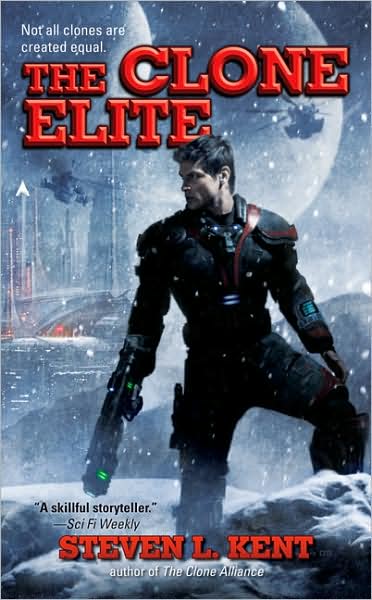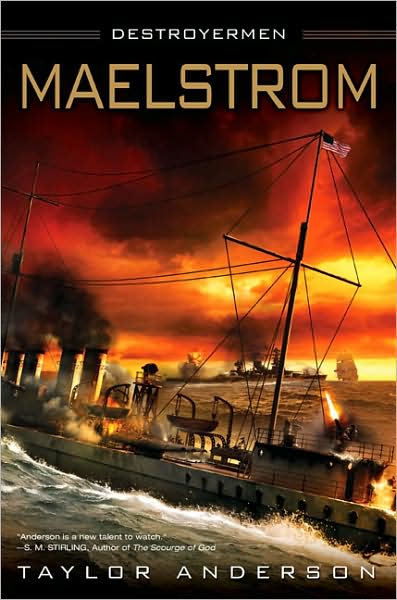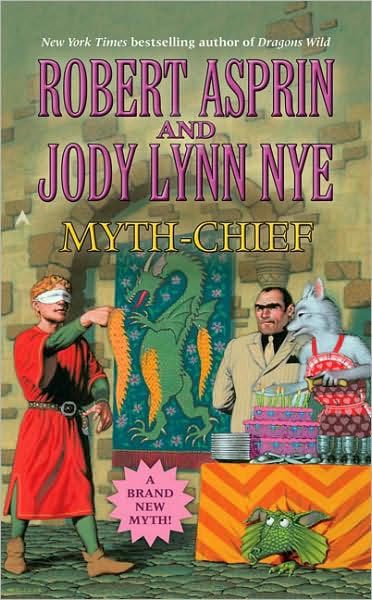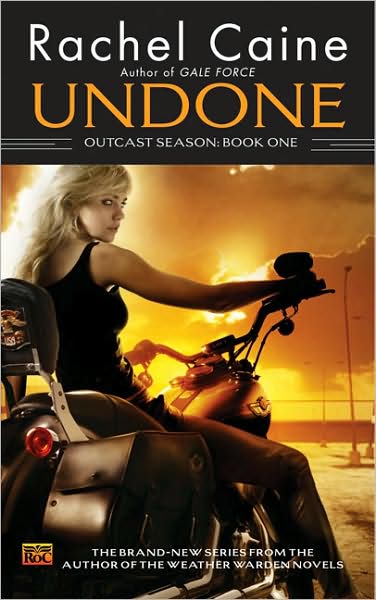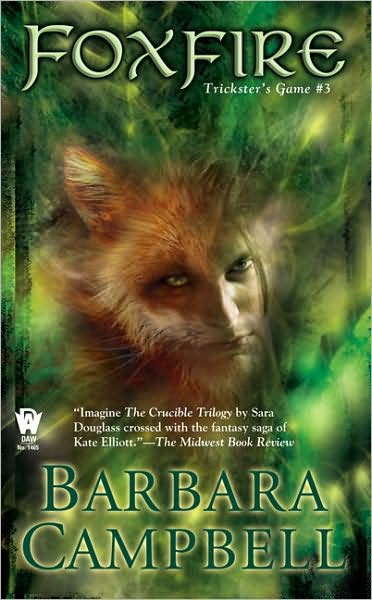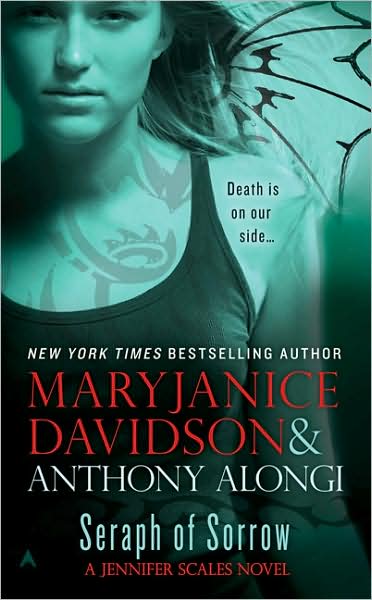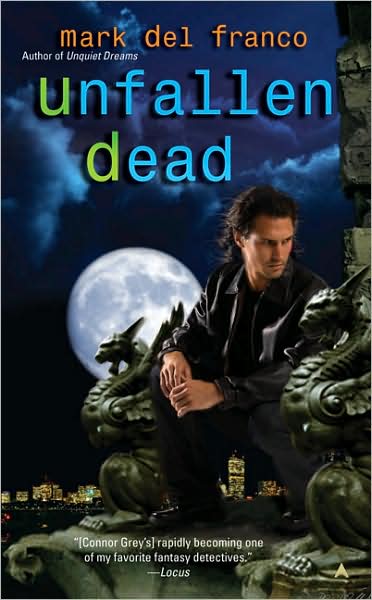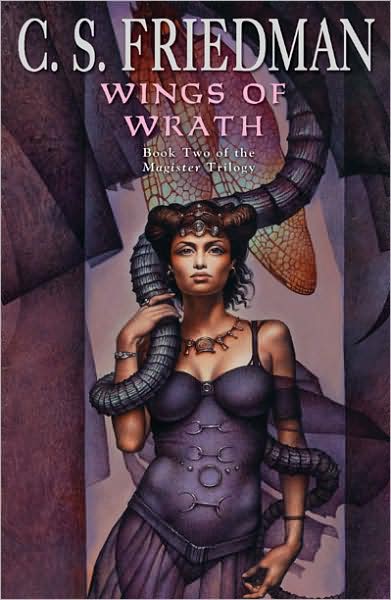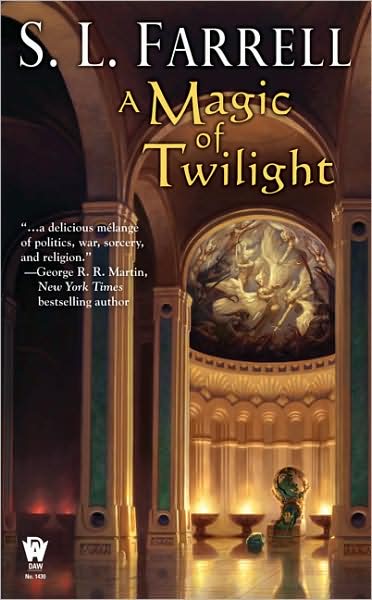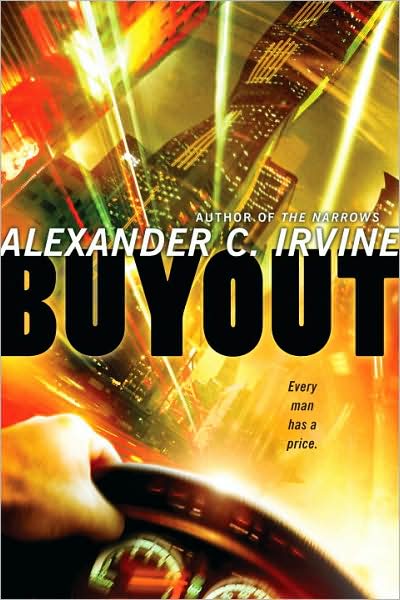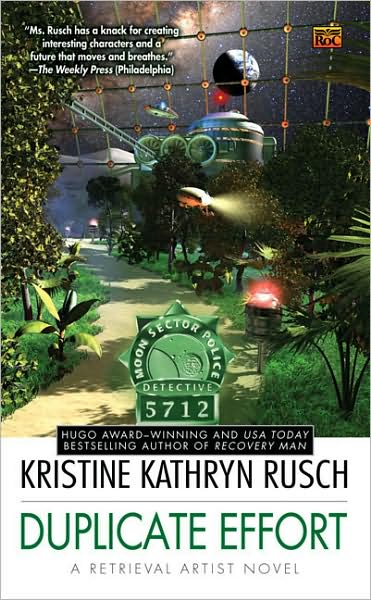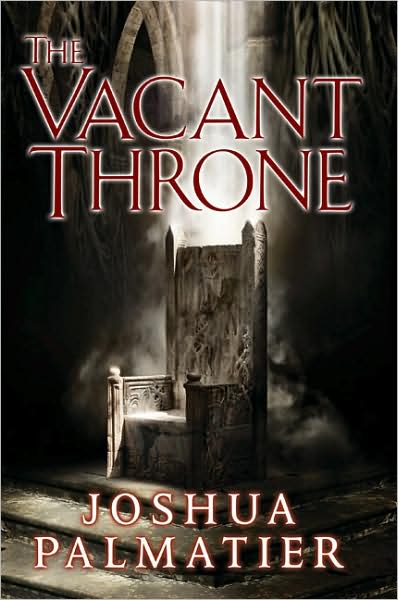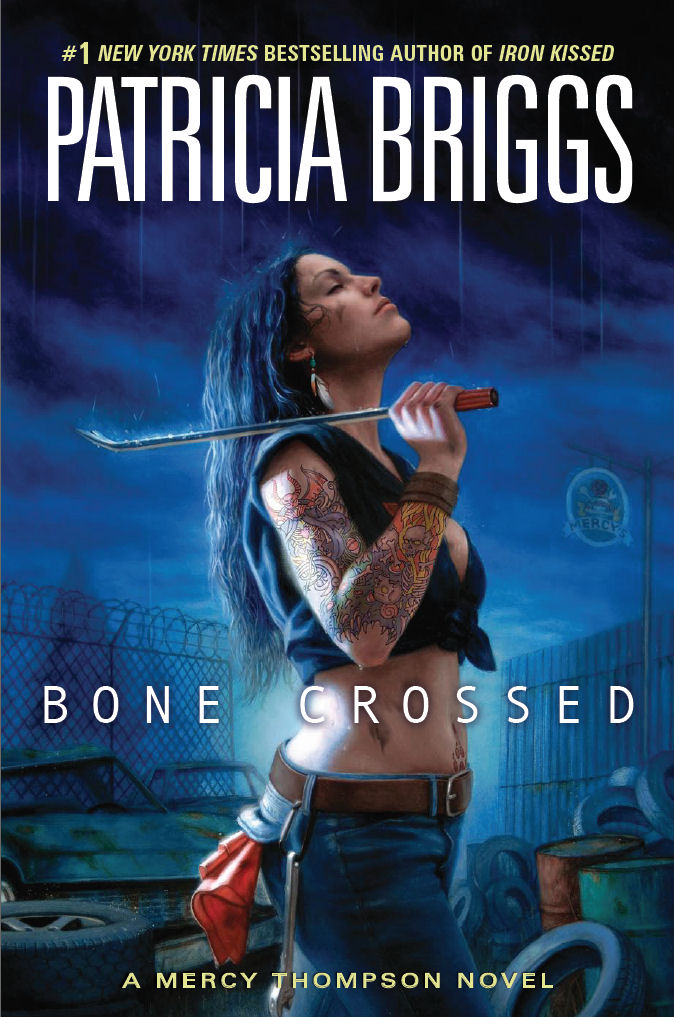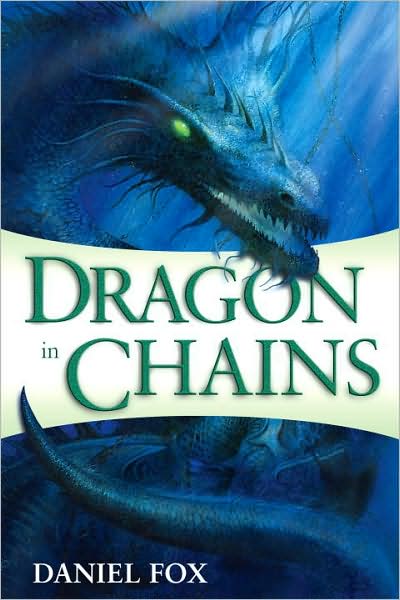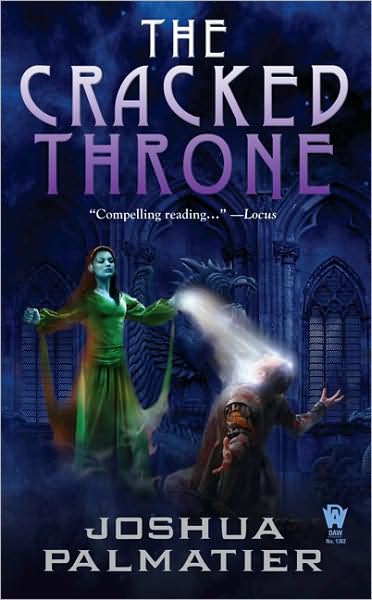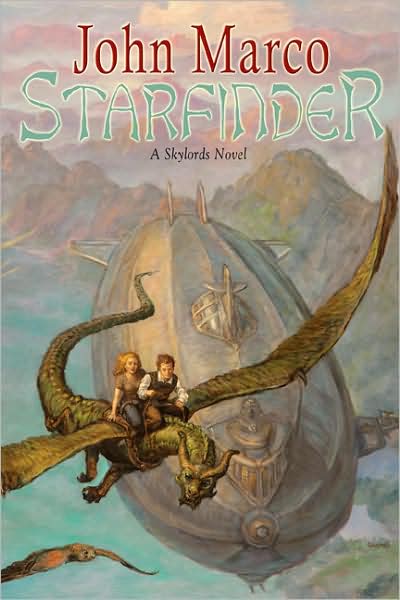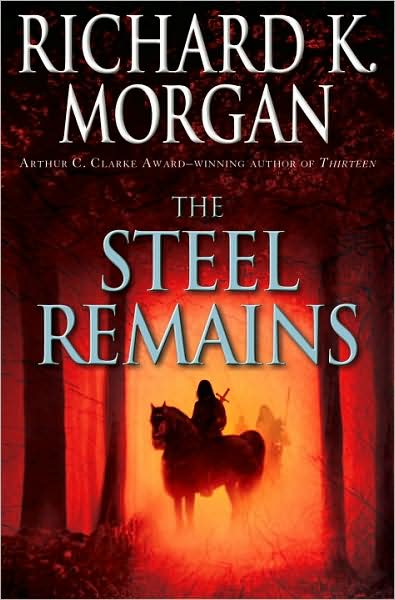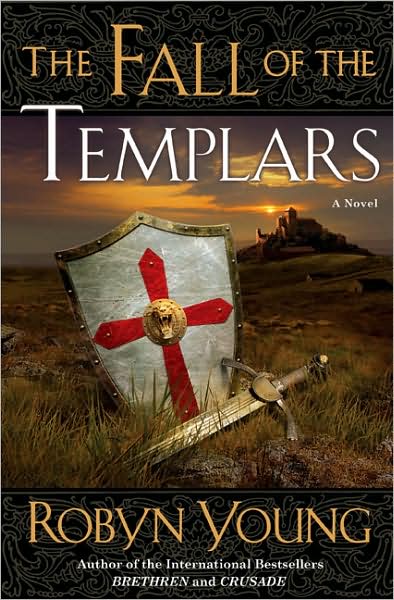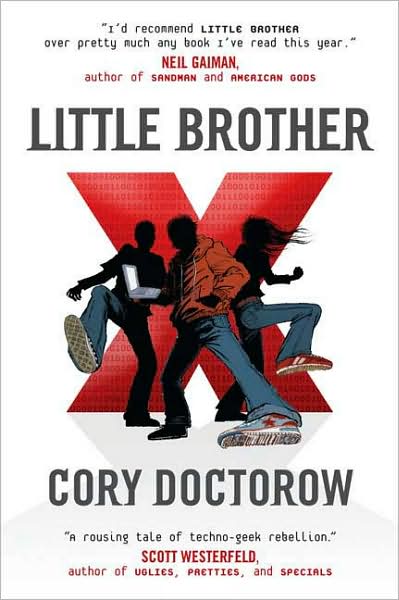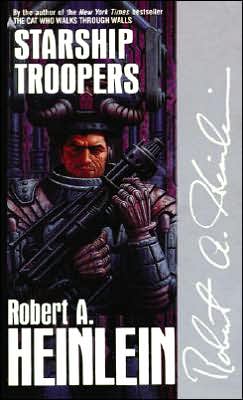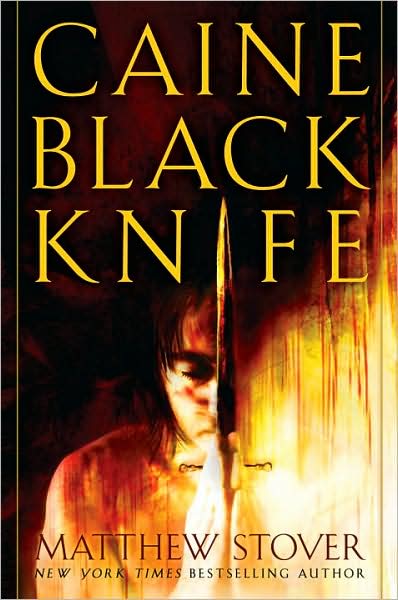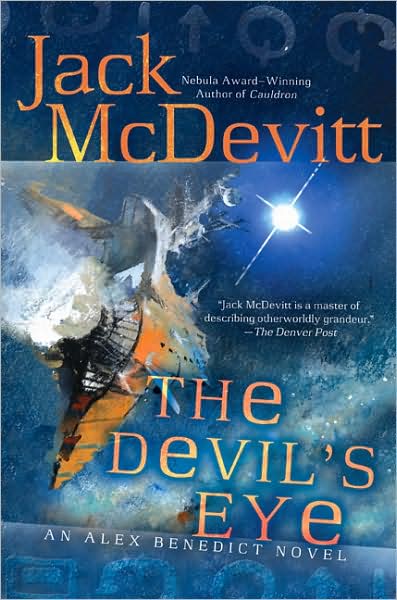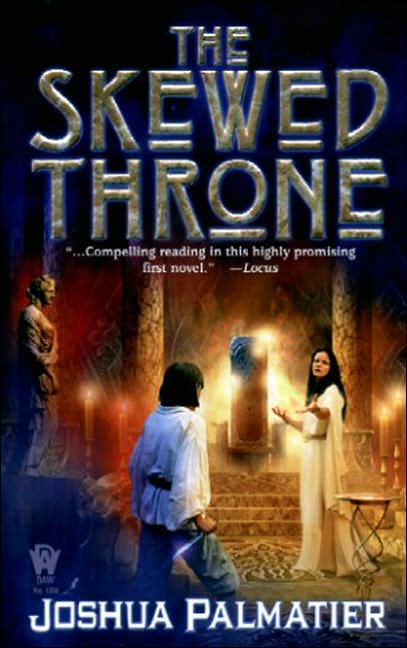Ganked from
Larry, here's the SFF list from Guardian. You all know the drill. Bold what you've read and mov on.
1. Douglas Adams: The Hitchhiker's Guide to the Galaxy (1979)2. Brian W Aldiss: Non-Stop (1958)
3. Isaac Asimov: Foundation (1951)4. Margaret Atwood: The Blind Assassin (2000)
5. Paul Auster: In the Country of Last Things (1987)
6. Iain Banks: The Wasp Factory (1984)
7. Iain M Banks: Consider Phlebas (1987)
8. Clive Barker: Weaveworld (1987)
9. Nicola Barker: Darkmans (2007)
10. Stephen Baxter: The Time Ships (1995)
11. Greg Bear: Darwin's Radio (1999)12. Alfred Bester: The Stars My Destination (1956)
13. Poppy Z Brite: Lost Souls (1992)
14. Algis Budrys: Rogue Moon (1960)
15. Mikhail Bulgakov: The Master and Margarita (1966)
16. Edward Bulwer-Lytton: The Coming Race (1871)
17. Anthony Burgess: A Clockwork Orange (1960)18. Anthony Burgess: The End of the World News (1982)
19. Edgar Rice Burroughs: A Princess of Mars (1912)
20. William Burroughs: Naked Lunch (1959)
21. Octavia Butler: Kindred (1979)
22. Samuel Butler: Erewhon (1872)
23. Italo Calvino: The Baron in the Trees (1957)
24. Ramsey Campbell: The Influence (1988)
25. Lewis Carroll: Alice's Adventures in Wonderland (1865)26. Lewis Carroll: Through the Looking-Glass, and What Alice Found There (1871)
27. Angela Carter: Nights at the Circus (1984)
28. Michael Chabon: The Amazing Adventures of Kavalier and Clay (2000)29. Arthur C Clarke: Childhood's End (1953)
30. GK Chesterton: The Man Who Was Thursday (1908)
31. Susanna Clarke: Jonathan Strange and Mr Norrell (2004)32. Michael G Coney: Hello Summer, Goodbye (1975)
33. Douglas Coupland: Girlfriend in a Coma (1998)
34. Mark Danielewski: House of Leaves (2000)
35. Marie Darrieussecq: Pig Tales (1996)
36. Samuel R Delaney: The Einstein Intersection (1967)
37. Philip K Dick: Do Androids Dream of Electric Sheep? (1968)38. Philip K Dick: The Man in the High Castle (1962)39. Umberto Eco: Foucault's Pendulum (1988)
40. Michel Faber: Under the Skin (2000)
41. John Fowles: The Magus (1966)
42. 43. Alan Garner: Red Shift (1973)
44. William Gibson: Neuromancer (1984)
45. Charlotte Perkins Gilman: Herland (1915)
46. William Golding: Lord of the Flies (1954)47. Joe Haldeman: The Forever War (1974)48. M John Harrison: Light (2002)49. Robert A Heinlein: Stranger in a Strange Land (1961)50. Frank Herbert: Dune (1965)51. Hermann Hesse: The Glass Bead Game (1943)
52. Russell Hoban: Riddley Walker (1980)
53. James Hogg: The Private Memoirs and Confessions of a Justified Sinner (1824)
54. Michel Houellebecq: Atomised (1998)
55. Aldous Huxley: Brave New World (1932)
56. Kazuo Ishiguro: The Unconsoled (1995)
57. Shirley Jackson: The Haunting of Hill House (1959)58. Henry James: The Turn of the Screw (1898)
59. PD James: The Children of Men (1992)
60. Richard Jefferies: After London; Or, Wild England (1885)
61. Gwyneth Jones: Bold as Love (2001)
62. Franz Kafka: The Trial (1925)
63. Daniel Keyes: Flowers for Algernon (1966)
64. Stephen King: The Shining (1977)65. Marghanita Laski: The Victorian Chaise-longue (1953)
66. Joseph Sheridan Le Fanu: Uncle Silas (1864)
67. Stanislaw Lem: Solaris (1961)68. Doris Lessing: Memoirs of a Survivor (1974)
69. David Lindsay: A Voyage to Arcturus (1920)
70. Ken MacLeod: The Night Sessions (2008)
71. Hilary Mantel: Beyond Black (2005)
72. Michael Marshall Smith: Only Forward (1994)
73. Richard Matheson: I Am Legend (1954)74. Charles Maturin: Melmoth the Wanderer (1820)
75. Patrick McCabe: The Butcher Boy (1992)
76. Cormac McCarthy: The Road (2006)
77. Jed Mercurio: Ascent (2007)
78. China Miéville: The Scar (2002)79. Andrew Miller: Ingenious Pain (1997)
80. Walter M Miller Jr: A Canticle for Leibowitz (1960)
81. David Mitchell: Cloud Atlas (2004)
82. Michael Moorcock: Mother London (1988)
83. William Morris: News From Nowhere (1890)
84. Toni Morrison: Beloved (1987)
85. Haruki Murakami: The Wind-up Bird Chronicle (1995)
86. Vladimir Nabokov: Ada or Ardor (1969)
87. Audrey Niffenegger: The Time Traveler's Wife (2003)
88. Larry Niven: Ringworld (1970)
89. Jeff Noon: Vurt (1993)
90. Flann O'Brien: The Third Policeman (1967)
91. Ben Okri: The Famished Road (1991)
92. Chuck Palahniuk: Fight Club (1996)
93. Thomas Love Peacock: Nightmare Abbey (1818)
94. Mervyn Peake: Titus Groan (1946)95. John Cowper Powys: A Glastonbury Romance (1932)
96. Christopher Priest: The Prestige (1995)97. François Rabelais: Gargantua and Pantagruel (1532-34)
98. Ann Radcliffe: The Mysteries of Udolpho (1794)
99. Alastair Reynolds: Revelation Space (2000)100. Kim Stanley Robinson: The Years of Rice and Salt (2002)
101. JK Rowling: Harry Potter and the Philosopher's Stone (1997)102. Salman Rushdie: The Satanic Verses (1988)
103. Antoine de Sainte-Exupéry: The Little Prince (1943)
104. José Saramago: Blindness (1995)
105. Will Self: How the Dead Live (2000)
106. Mary Shelley: Frankenstein (1818)107. Dan Simmons: Hyperion (1989)108. Olaf Stapledon: Star Maker (1937)
109. Neal Stephenson: Snow Crash (1992)
110. Robert Louis Stevenson: The Strange Case of Doctor Jekyll and Mr Hyde (1886)
111. Bram Stoker: Dracula (1897)
112. Rupert Thomson: The Insult (1996)
113. Mark Twain: A Connecticut Yankee at King Arthur's Court (1889)114. Kurt Vonnegut: Sirens of Titan (1959)
115. Robert Walser: Institute Benjamenta (1909)
116. Sylvia Townsend Warner: Lolly Willowes (1926)
117. Sarah Waters: Affinity (1999)
118. HG Wells: The Time Machine (1895)119. HG Wells: The War of the Worlds (1898)120. TH White: The Sword in the Stone (1938)121. Gene Wolfe: The Book of the New Sun (1980-83)122. John Wyndham: Day of the Triffids (1951)
123. John Wyndham: The Midwich Cuckoos (1957)
124. Yevgeny Zamyatin: We (1924)
31 out of 124
Ass-Hat Magic Spider by Scott Westerfeld (Uglies, Midnighters, The Risen Empire, Peeps) kicks off the anthology. The story here is no different showcases a hopeful future not just for humanity’s survival, but for the future and power of storytelling and books.
